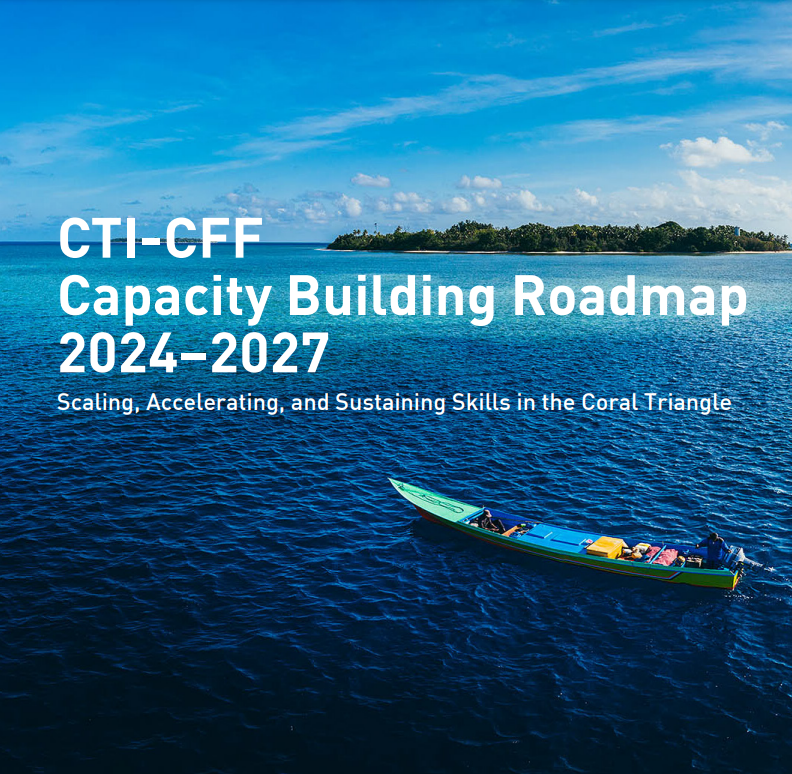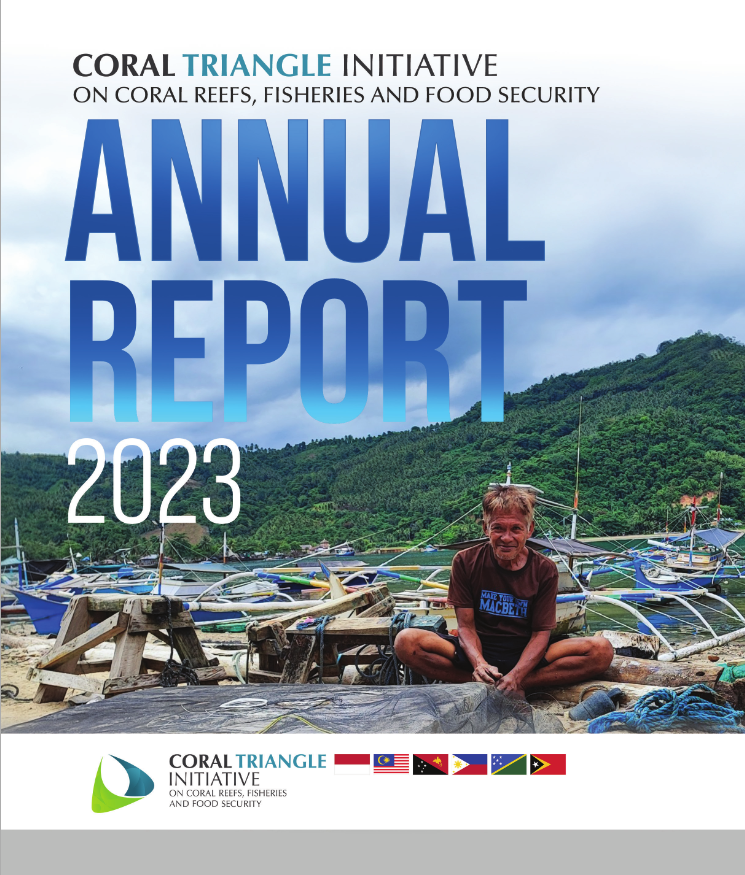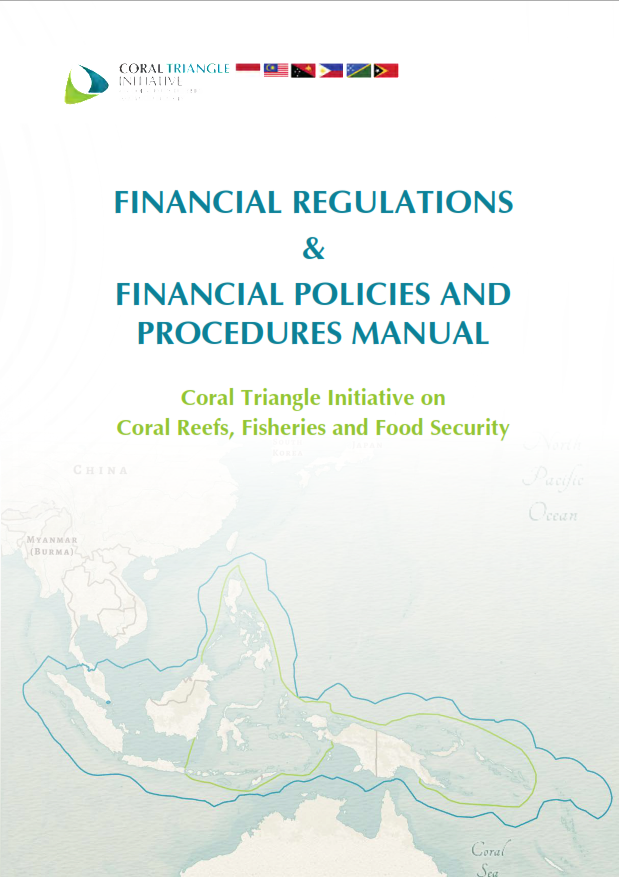Coral Triangle Day calls for unified collaborations for plastic-free oceans
Manado, Indonesia June 2020 – In celebration of Coral Triangle Day, the six member countries of the Coral Triangle Initiative on Coral Reefs, Fisheries and Food Security (CTI-CFF) namely, Indonesia, Malaysia, Papua New Guinea, Philippines, Solomon Islands and Timor-Leste agreed to work together and call for a unified collaborative actions to address the pressing global problem on marine plastic pollution.
Based on 2019 UN Environmental Program report, a growing amount of plastic wastes turn up in Southeast Asian waters – especially plastic packaging. More than half of the plastic in the surrounding ocean ‘originates’ from the Southeast Asian countries itself.
Developed countries export their plastic wastes to our region for so-called ‘recycling’. Much of the wastes could not be recycled and ended up in our landfills, rivers and eventually also at sea. Not all plastic materials are recyclable. Developed countries with tight regulations on recyclable materials have plastic products produced by manufacturers which are recyclable but developing countries and undeveloped countries have to bear cheaper unrecyclable plastic products. It is timely that the governments of developing countries should also look into the aspects of ensuring that recyclable plastics are produced or use by their local consumers. But of course this has limitation too because some food need to have multilayers plastic to contain them and multilayers plastic containers are more costly and some can hardly be recycled.
Stricter control of plastic scrap wastes in the CT region is urgently required. Additionally, production and use of plastics in this region should be reduced with several strategies such as reduce, recyclable, as well as new alternatives to plastic.
“Addressing the grave impact of plastic in marine environment as well as to human health calls for a concrete regional cooperation. It is important that the Coral Triangle member countries and its stakeholders synergize their efforts for collaborative actions on marine plastics, in order to improve the implementation and results on the ground,” emphasizes Dr. Mohd Kushairi Mohd Rajuddin, Executive Director of CTI-CFF Regional Secretariat.
Dr. Kushairi reiterated that CTI-CFF is making efforts to cooperate and collaborate with existing activities within this region, particularly under the purview of SPREP, ASEAN, APEC, COBSEA and its Regional Action Plan on Marine Litter (RAP MALI) and Experts WG on Marine Litter, UNEP Regional Seas programmes, UNEP UNEA-4, the Global Programme of Action for the Protection of the Marine Environment from Land-Based Activities (GPA), and Sustainable Development Goals and Post-2030 Agenda (especially on SDG 14), on marine plastic litter. Additionally, it is working together with WWF’s plan to assist CTI-CFF undertakes a Stocktake of marine plastics situation in the CT region, assessing existing regional, national and local level efforts and collaborate with other stakeholders from the government, non-government, communities and private sectors in ensuring the food security, sustainable livelihoods and well-being of the CT communities.
The Coral Triangle Day, which is celebrated every 9th of June, is an annual event that brings together individuals, organizations, and establishments to shed light on ocean conservation and the numerous ways to protect and conserve the Coral Triangle.
###The end###
About CTI-CFF
The Coral Triangle Initiative on Coral Reefs, Fisheries, and Food Security (CTI -CFF) is a multilateral partnership of six countries: Indonesia, Malaysia, Papua New Guinea, the Philippines, Solomon Islands, and Timor-Leste (CT6). The CT6 countries work together to sustain extraordinary marine and coastal resources by addressing crucial issues such as food security, climate change, and marine biodiversity. The CTI-CFF was established formally during the Leaders’ Summit in 2009 with approval of the leaders from the CT6 countries. They adopted the CTI Regional Plan of Action (CTI RPOA) which is a strategic action plan with five goals: (1) designation of effectively managed seascapes; (2) application of an ecosystem approach to fisheries management; (3) establishment of a fully functional marine protected area system; (4) strengthening climate change adaptation and resilience; and (5) improving the status of threatened marine species.
About Regional Secretariat
The Regional Secretariat (RS) of the CTI-CFF is mandated to promote regional cooperation, knowledge sharing, and learning facilities within the six-member countries of the Coral Triangle. The RS coordinates and monitors the progress of the implementation of the Regional Plan of Action (RPOA) goals. The RS coordinates and supports official meetings and events linked to the CTI-CFF process, including cross-cutting services in support of monitoring and evaluation, financial coordination, information management and outreach. It also coordinates the implementation of CTI-CFF RPOA and provides support to, and coordination with, NCCs, including advising the CTI-CSO on emerging opportunities and priorities to reaching the goals and targets of the RPOA. The RS also acts as the channel of communication and information sharing and foster networking among the Parties, CTI Partners and other organizations and donors in the efforts to promote the objectives of the CTI-CFF. The Regional Secretariat is based in Manado, North Sulawesi, Indonesia.
###
Media Contact:
Janet Rosalie Anne H. Polita
Communication & Information Manager
CTI-CFF Regional Secretariat www.coraltriangleinitiative.org
Email: jpolita@cticff.org
and regional.secretariat@cticff.org



